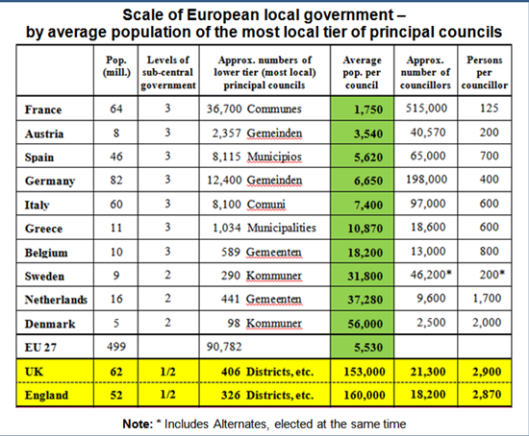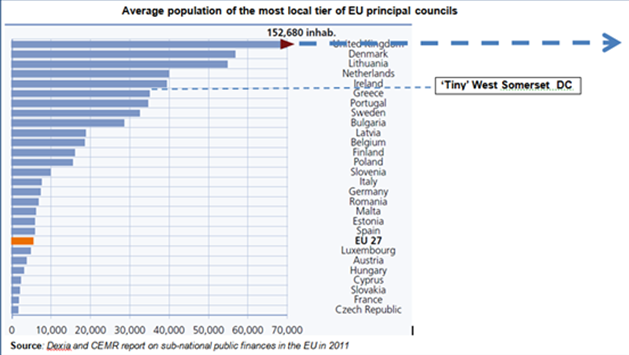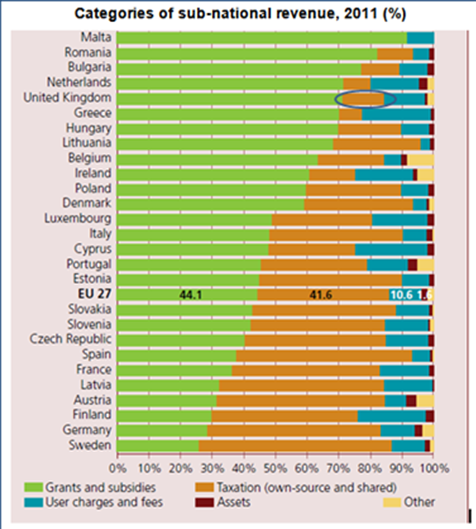Chris Game
There’s an album track by the heavy metal band, Skyclad, inspired by the most infamous civil service email ever – the ‘good day to bury bad news’ message by Jo Moore, special adviser to Local Government Minister, Stephen Byers, at 2.55 p.m. on September 11th 2001, an hour after al-Qaeda terrorists crashed their hijacked jets into the twin towers of New York’s World Trade Center. I’m no metalhead anyway, but there are two things about the track that especially grate.
First, the title, which, presumably in the interests of scansion, is mangled into ‘A good day for to bury bad news’. Oh dear! Even more distressingly, it’s all stuff about the West waking up to a terror attack, but having the muscle to give it all back. Not one mention of councillors’ pensions – which was, of course, the toxic news on Jo’s mind when she actually typed: “It is now a very good day to get out anything we want to bury. Councillors’ pensions?”
You must admit, it’s intriguing. Not just that anyone should think that the most embarrassing thing New Labour was up to was contemplating pensions for councillors, but that at the time Ministers themselves intended it to be, if anything, good news. Following some unenthusiastic reports of the early months of executive-based local government, they were looking for ways of making council service seem a more attractive prospect to existing and, even more, to potential members.
In the consultation paper published the next day, there were proposals for councils to determine their own travel and subsistence allowances and, if their independent remuneration panels recommended, to pay pensions to those councillors – executive members and chairs of overview and scrutiny committees – whose special responsibility allowances would be likely to qualify them to join the council employees’ Local Government Pension Scheme (LGPS).
To repeat, it was definitely not Labour’s initial intention to extend the acknowledgedly generous and secure LGPS to all councillors, for most of whom, the consultation paper suggested, the Government’s recently introduced employer-sponsored Stakeholder pension scheme would be more appropriate. The consultation, however, changed all that.
The Local Government Association (LGA) and its Pensions Committee were opposed in principle to any differentiation of councillors based on work patterns and remuneration levels, seeing it as untenable, discriminatory and unhelpful to the cause of attracting and retaining councillors. They wanted the LGPS open to all councillors.
Somewhat to their surprise, however, they were also advised by OPRA – no, not Lance Armstrong’s chosen inquisitor, but the Occupational Pensions Regulatory Authority – that, for pension law purposes, all councillors should indeed be treated as employees, and therefore entitled to join the LGPS. Which meant that if, as proposed, most councillors were ruled ineligible for the LGPS, they would also lose access to Stakeholder pensions, and could take legal action against Ministers for introducing discriminatory legislation.
It was only at that later point that Ministers must have realised that their strictly limited-scale sweetener was turning into something approaching Cadbury World – too late, politically, to turn back, so they didn’t. When the snappily titled Local Government Pension Scheme and Discretionary Compensation Regulations (Local Authority Members in England) Regulations came into operation in May 2003, the discretion exercised by councils’ remuneration panels applied to all members. A review promised in 2008, when the rest of the LGPS was significantly revised, never happened, and so that’s essentially where we are today.
Whether you describe the LGPS as ‘gold-plated’ depends probably on the newspaper you read, but it’s undeniably attractive, and popular. It’s a tax-approved, career-average scheme – in contrast to the final salary scheme for full-time employees – with benefits based, for councillors, on years in the scheme and average pay over those years, in basic and special responsibility allowances. Contributions are 6% of allowances, and additional benefits include a tax-free lump sum on retirement at 70, optional earlier retirement and ill-health retirement at any age, ability to increase pension by paying Additional Voluntary Contributions, a death in service lump sum of two times career-average pay, index-linking of benefits, and, certainly not least, the security of all this being changeable only by Act of Parliament.
The TaxPayers’ Alliance (TPA) uses Freedom of Information requests to gather and publicise such data that the rest of us can’t be bothered to, and it found that in 2010/11 over 4,500 or one in five UK councillors were enrolled on the LGPS – at an estimated annual cost, now quoted authoritatively by Ministers, of £7 million .
The 4,500 were in fact drawn from only about 240 participating councils. The bulk of non-participating authorities, as would be expected, are smaller shire districts, but by no means all. There are county, unitary and London borough councils that have chosen, with plaudits from the TPA, not to extend their LGP schemes to councillors, including – taking our own region of the West Midlands as an example – Coventry and, almost completely, Worcestershire. By contrast, nearly 90% of Warwickshire members were signed up, 54 in Birmingham, 28 in Sandwell, 22 in Solihull, 19 in Dudley, and 12 each in Walsall and Wolverhampton.
Not, however, for much longer. In a kick’em-while-they’re-down footnote to December’s finance settlement, Local Government Minister, Brandon Lewis, announced that from April 2014 councillors would no longer be eligible to join or accrue further benefits from the LGPS – though provocatively the bar does not cover London Assembly Members, Police and Crime Commissioners, and, to the particular irritation of full-time council leaders, elected mayors.
It’s a ministerial, not party, policy. Conservative councillors and leaders have been as vocal in their protests as their Labour counterparts, although it is the latter who reportedly are contemplating judicial review. Lewis, however, insisted that Ministers in this Government “take a fundamentally different view to the last Administration. We do not believe taxpayer-funded pensions are justified.” Rather, they are “a corrosive influence on local democracy and independent thought, blurring the distinction between council staff and councillors. Councillors are volunteers undertaking public service; they are not professional, full-time politicians, nor should they be encouraged to become so”.
In other words, don’t tell me that senior councillors are, in practice, full-time; that the National Census of Councillors shows one in five working over 36 hours a week. That’s their choice, as it is for other, though unpaid, volunteers – like scout troop leaders, the comparison used by Conservative Chairman, Grant Shapps, on Thursday’s BBC Today programme. So, just in case it crossed their avaricious little minds, don’t even think of it: there’s “absolutely no case for increasing councillor allowances to compensate”.
As it happened, it was allowances that prompted Shapps’ remark. He was facing Clive Betts, Chair of the Commons Communities and Local Government Committee, who have just produced a report on the role of the modern councillor, Councillors on the Front Line. There’s an important section of the report on Support and Training directly relevant to some of the Institute’s work with councillors, but it was allowances that the Today programme wanted to know about.
The Committee identifies three key barriers to people becoming and remaining councillors: the time involved, the unsupportive view taken by many employers of their staff becoming councillors, and the levels of allowances: “high enough to offend the public, but not high enough to encourage any sane person to give up their career and earning capacity to take it on” (para.76).
Because of the public controversy involved, “few councillors will vote themselves higher allowances, even if there is a legitimate reason for doing so”, such as attracting more and a greater diversity of people to stand for election. Councils therefore, recommended the Committee, should be given the power to transfer decisions about allowances to independent bodies, with councillors themselves no longer having the final say, as they do at present with the recommendations of remuneration panels.
There must have been select committee proposals with even less prospect of being swiftly implemented than this one, but just at present I can’t think of many.
Chris is a Visiting Lecturer at INLOGOV interested in the politics of local government; local elections, electoral reform and other electoral behaviour; party politics; political leadership and management; member-officer relations; central-local relations; use of consumer and opinion research in local government; the modernisation agenda and the implementation of executive local government.



